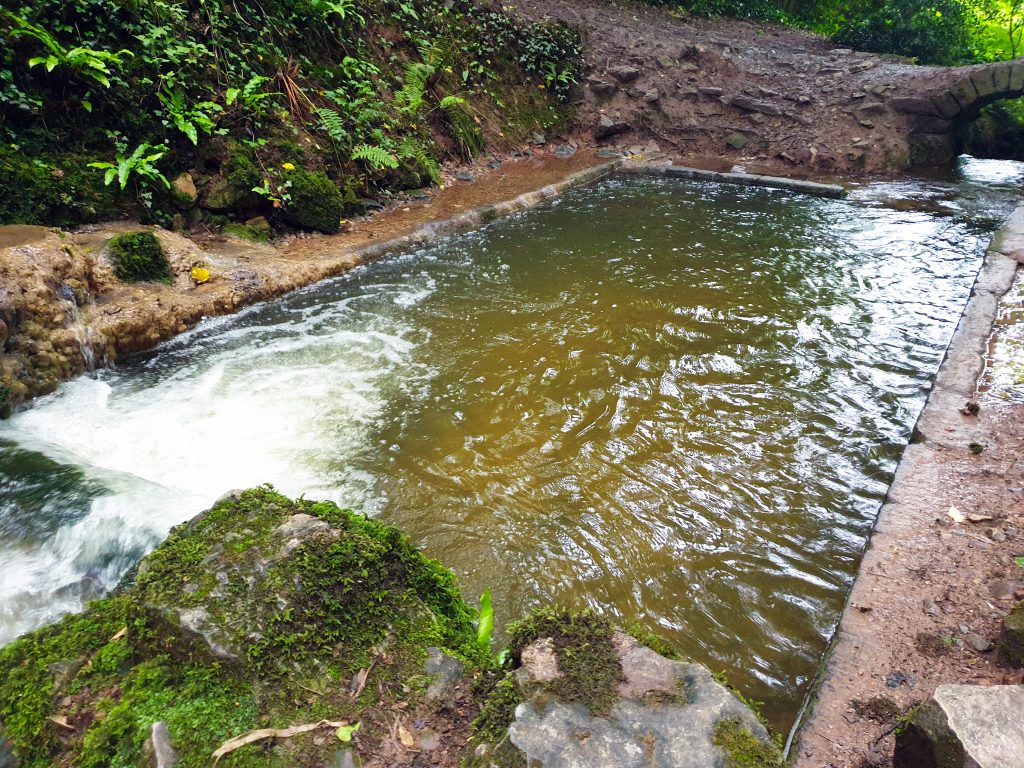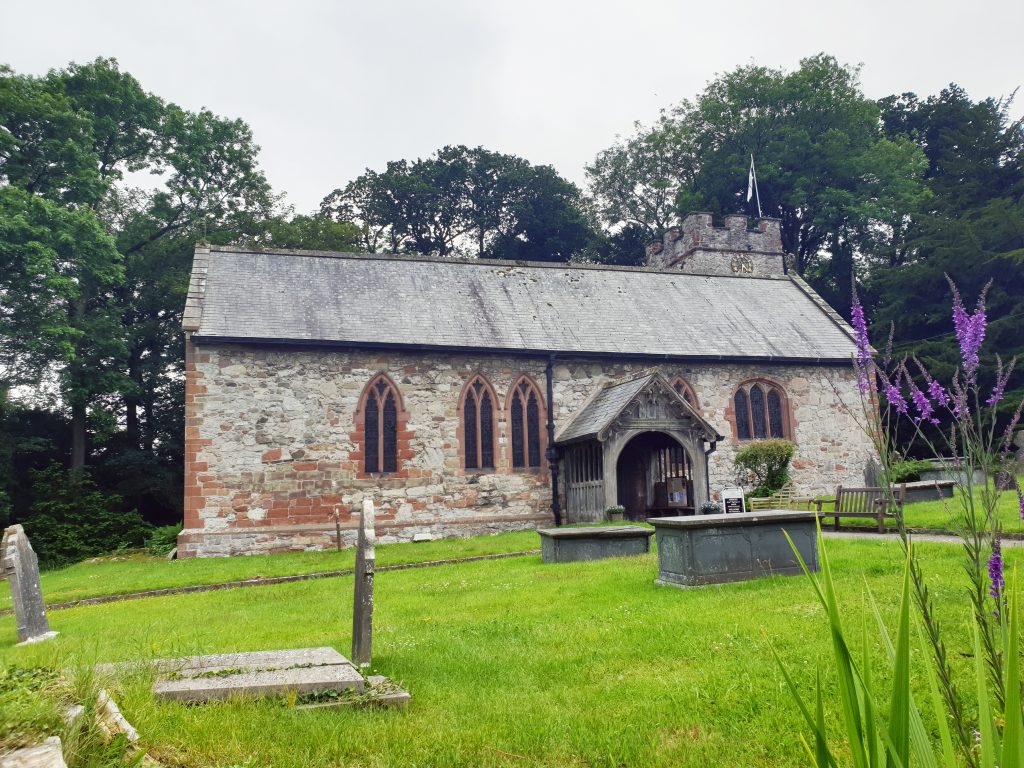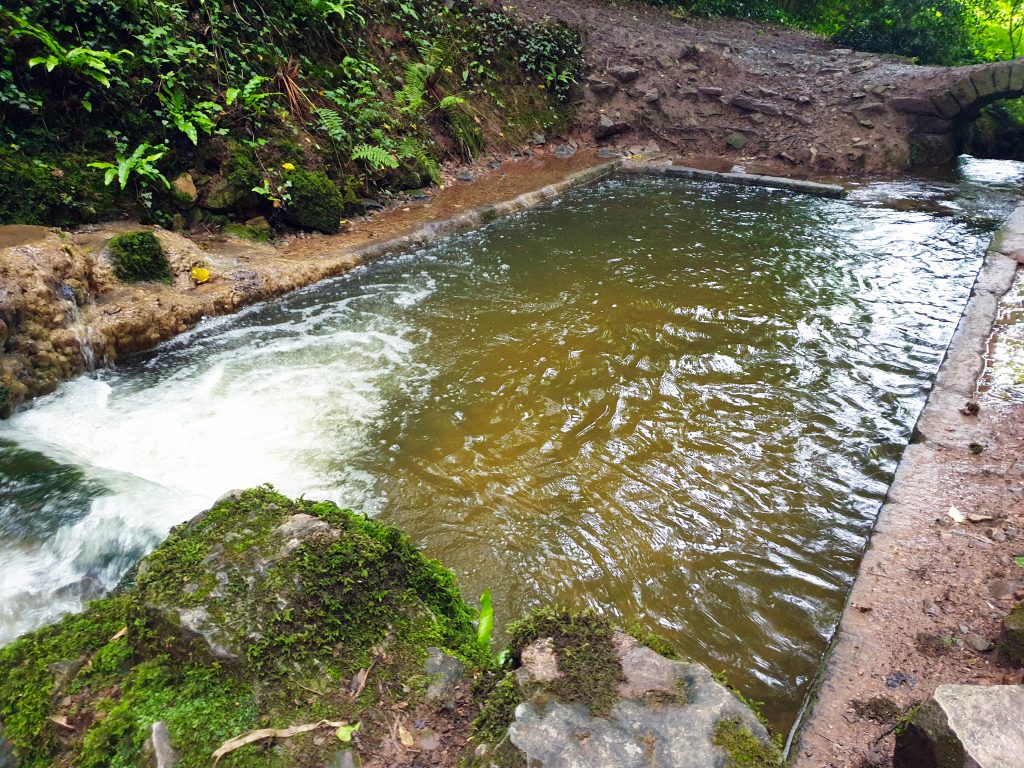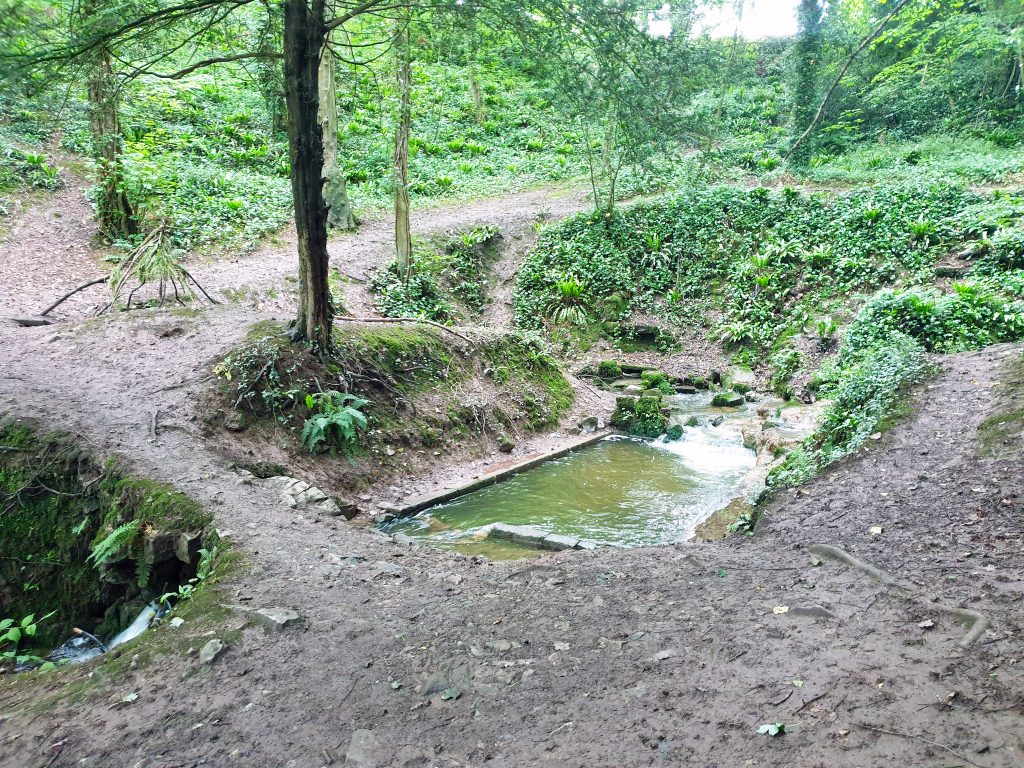
Wales is a land which has rightly been said to have been built on the saints, and almost every other town or village is called Llan-something, which represents the Welsh word for a monastery or church enclosure. Usually the name of the place refers to the ancient Orthodox saint who founded the monastery or church. In this case, the connection with St Dyfnog is found in the village of Llanrhaeadr in Denbighshire, North Wales. It has the meaning of the Church near the rushing stream, and the rushing stream still runs along the side of the more recent church building dedicated to St Dyfnog.
Llanrhaeadr is a few miles from Denbigh, and about 25 miles from the Coptic Orthodox Church of St Mary and St Abaskyroun in Llandudno, and just 57 miles from the Coptic Orthodox Church of St Mary and St Cyril in Liverpool.

St Dyfnog came from a noble Welsh family in the 6th or 7th century, and was related to many other Orthodox saints of this period and earlier. He chose to abandon a life of wealth and influence and became a monk in one of the great Welsh monasteries before setting of into the remote countryside to find his own place of prayer. Llanrhaeadr is a very small village even today, and it must have been entirely isolated when he found it. There is a rushing stream, filled with water, and he constructed a small wooden church and a monastic cell at the place where the later 13th-15th century church was built in dur course, long after the time of St Dyfnog, but dedicated to his memory and veneration.

Following the swiftly flowing stream along the churchyard, and then through a stone arch, a well-trodden path can be seen leading upstream. After 200 metres, and crossing several small Victorian bridges over the stream, to make the passage easier, an impressive pool is discovered. Water flows into the pool from two springs at the head, and flows out with great force at the bottom, and into the stream. It is about 18 inches deep, and lined with stone.

It was in this pool that St Dyfnog would stand in the cold waters while at prayer as part of his ascesis, and it was in these waters that the local people he converted to the Orthodox-Catholic Christian faith were baptised. His holy prayers have sanctified these waters and this place. To stand in this wooded place, with the sound of the water rushing in and out of the holy pool, and to bend down and take the waters and make the sign of the cross on the forehead, and to pour the blessed water on the head, is a moving experience.
His holy pool is well worth a visit, and is often very quiet and ideal for reflection. The desert places are filled with the memory and presence of the saints, but the deserts of Wales are green. May the prayers of St Dyfnog be with us all, as we seek to live out the same faith as his. His is a lasting memorial, expressing the influence he had on those among whom he lived so long ago.
